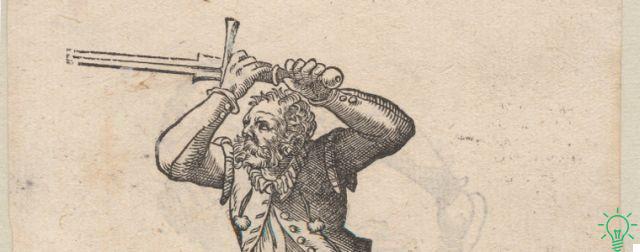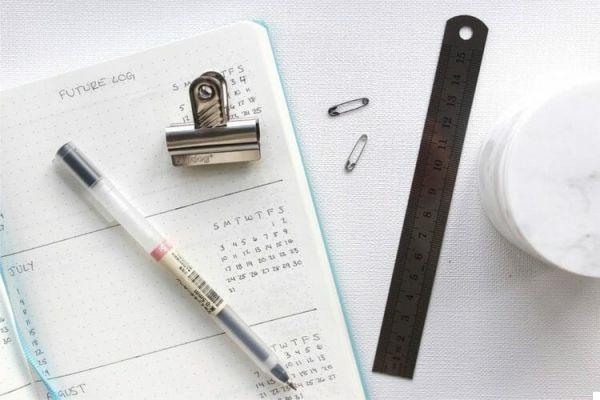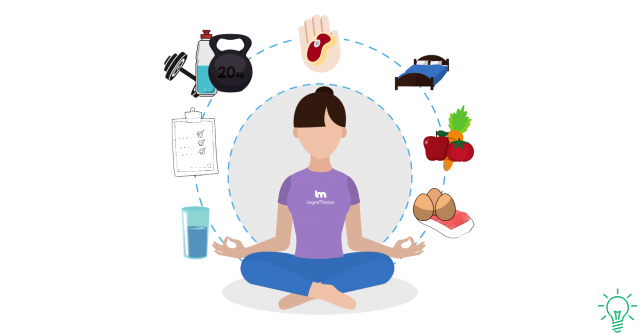Needed help: an ancient strategy to create new habits.

We are what we repeatedly do. Therefore excellence is not an action, but a habit.
AristotleThe teachings on personal growth, for those who know how to grasp them, very often come from unthinkable sources.
With the Personal Growth Lovers project I have always tried to offer useful lessons regardless of the source of origin.
In fact, I have often transmitted techniques and strategies learned from books, stories, sports, life and films.
In order not to miss anything, today let's see what we can learn from one Latin phrase famous molto: needing help.
Let's start by understanding its meaning well.
Meaning and etymology of the phrase repetita iuvant
Let's start from the beginning: what is the meaning of this famous Latin phrase?
Repetita iuvant is a phrase that means: repeated things help or repeated things help.
The sense is that the more actions are repeated over time, the more likely they are to be accepted and absorbed.
The concept is a la basis of habits but obviously it must be applied following some important precautions.
So let's see something more on the strategy of repetition.
What we need to know about habits

Before talking about the repetitive strategy there are some general considerations about habits.
- If we create a habit we can automatically improve. Once the habit is established we don't need to think about it, everything will happen automatically. Think about when you brush your teeth: if you have been doing it regularly for years, you hardly think about it and maybe sometimes you don't remember if you brushed them or not. Another classic example is driving: at the beginning we have to constantly think about what we do and even a chat with the passenger can send us into crisis, but once we repeat our mental and motor patterns enough, we do everything automatically and then we succeed. listening to a podcast, the passenger or just thinking about something else.
- Habits are seeds for the future. Do you remember the opening quote? We are what we do over and over again. Each habit in its early stage is a small seed for the future. If we plant useful seeds, many interesting things will grow over time, while if we sow weeds, over time we will find ourselves inundated with unpleasant things.
- Most of the things we do are automatisms (habits). The example of the automobile is always useful: do you still think fully present about the gearbox or the steering wheel if you have been driving for several years? Our life is made up of automatisms: waking up every morning at 6; feed the cat; go to the gym every night; fasten the seat belt. Automatisms are all around us and recognizing them puts us in a position to eliminate or replace useless or harmful ones.
- Getting rich, successful, happy, or whatever is a matter of habits. As I said, habits are seeds for the future. Imagine a rich person: she is used to being rich. Every day she got used to taking certain actions with money and investing it in a certain way. Or think of a fit person: he is used to moving and eating well, not eating junk every day, in short: repetita iuvant.
Find a repeated shocking iuvant

We understand that habits are a tool that with a little effort repeatedly produce important results.
Now we must understand how to activate and promote new habits that can generate useful and impactful automatisms in the future.
Try to think about it for a moment: what could be that single habit that can improve the quality of my life within a year?
To simplify, we can think of people we admire and for which maybe we feel a little envious: what are these people doing?
- A fit person may be used to avoiding certain foods or exercising twice a week.
- That person you admire might block 30 minutes every night to read, maybe that's why they always have the answer ready.
- That friend of yours who often spends weekends on vacation may be used to saving money.
- Your acquaintance who always posts amazing photos on social media may have spent some time investing in himself and followed a photography course.
Try observing the people around you.
Once you have identified the sector in which to activate your repetita iuvant try to imagine yourself and find the vision of what you would like to change, but do not focus on taking something away, rather focus on what you would like to create, for example a dazzling smile.
Or focus on things that don't require special skills such as being punctual, engaging in what you do, reading or listening.
All of these things don't require talent, there are no excuses.
In short, try to think what that activity would be that transformed into a habit it will bear fruit in the next months.
Now let's see how to make things a little easier.
Repeat and hammer with this method

As I said, strength lies in repetition: in the gym doing a single repetition is useless, running a single time is useless, it becomes useful when you do it again and again.
However, it is often difficult to create new habits from scratch so we can connect the habit we want to another one we already have.
To start, make a mental list of all your habits you don't think about like taking the elevator, brushing your teeth, feeding the cat, then link another habit to one of these.
For example, while brushing your teeth you might think of a new word per week you want to learn, or listen to a podcast while you shower, go over the times tables while you feed the cat, or floss next to your toothbrush.
Finally, let's see 6 actions to further facilitate the task.
- Choose the theme of the month. Choose only one habit at a time: in the last period I have chosen to establish a single habit per month, so I have a little more time than the fateful 21 days that everyone recommends and the separation of the calendar helps me, for example by creating the podcast month or tooth month.
- Start small. The biggest mistake we can make is starting in fifth gear, when we need to downshift just like when we are driving. Start small: 2 minutes of meditation, an episode of a podcast or a page read, slowly increases.
- Expose yourself publicly. If you like you can write in the comments of this article the habits you want to establish or tell us the theme of your month to make your commitment more stable and strong.
- Follow a written plan. There are times when we are hesitant, confused or indecisive, to avoid losing even a single day, follow a written plan. Create your bullet journal, use the calendar or write a diary to write down everything you want to do. When confused, follow the written plan.
- be positive. Positive thoughts can be useful if they are not associated with bizarre energies or wacky vibrational techniques. Be positive but above all propositive towards small new habits, however insignificant they are all seeds for the future.
As you may have guessed, the real secret is to always act consistently, (repetita iuvant) because when you are used to doing something, even if you don't want to, 90% of yourself will be used to taking action.
Also remember that to change a habit there must be mindfulness, with automatism you will not change, you have to put mindfulness into what you do until it becomes automatic.


























